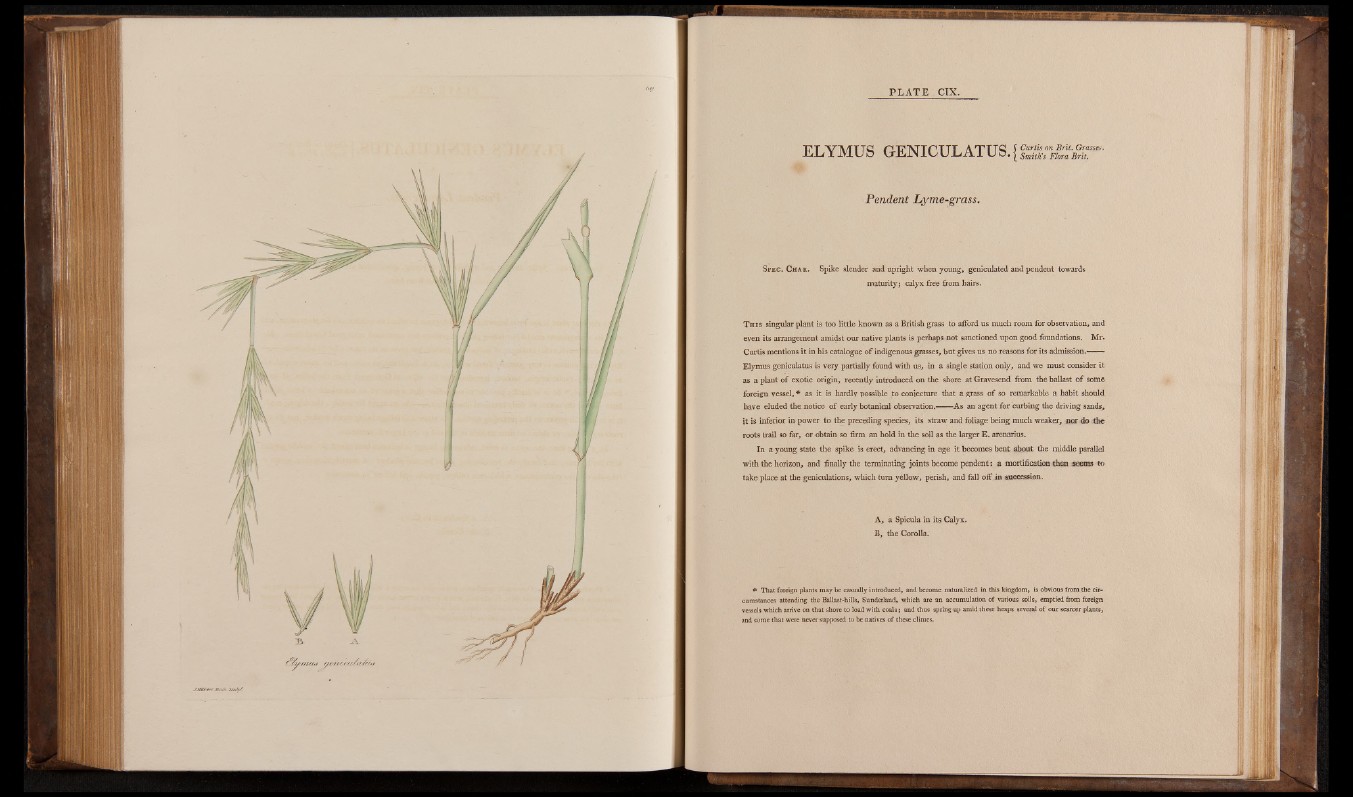
ELYMUS GENICULATUS. {
Pendent Lyme-grass.
Spec. Char. Spike slender and upright when young, geniculated and pendent towards
maturity} calyx free from hairs.
T his singular plant is too little known as a British grass to afford us much room for observation, and
even its arrangement amidst our native plants is perhaps not sanctioned upon good foundations. Mr.
Curtis mentions it in his catalogue o f indigenous masses, but gives us no reasons for its admission.-
Elymus geniculatus is very partially found with us, in a single station only, and we must consider it
as a plant o f exotic origin, recently introduced on the shore at Gravesend from the ballast o f some
foreign vessel,* as it is hardly possible,to conjecture that a grass o f so remarkable a habit should
have eluded the notice o f early botanical observation.— —As an agent for curbing the driving sands,
it is inferior in power to the preceding species, its straw and foliage being much weaker, nor do the
roots trail so far, or obtain so firm an hold in the soil as the larger E. arenarius.
In a young state the spike is erect, advancing in age it becomes bent about (he middle parallel
with the horizon, and finally the terminating joints become pendent: a mortification then seems to
take place at the geniculations, which turn yellow, perish, and fall off in succession.
A, a Spicula in its Calyx.
B, the Corolla.
# That foreign plants may be casually introduced, and become naturalized in this kingdom, is obvious from the circumstances
attending the Ballast-hills, Sunderland, which are an accumulation of various soils, emptied from foreign
vessels which arrive on that shore to load with coals; and thus spring up amid these heaps several of our scarcer plants,
and some that were never supposed to be natives of these climes.